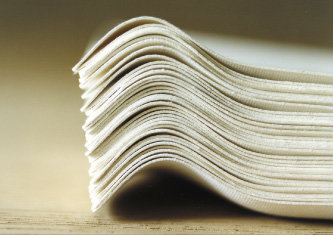Wasara: Designey, Compostable Disposable Plates from Japan
They're as pretty as they are pricey
These are so pretty, it's a shame they're meant to be thrown away. Japanese manufacturer Wasara produces an eponymous line of disposable tableware with a designey flair:













Like uncoated paper plates, they're compostable. The company says that they'll "decompose into carbon dioxide, water, and inorganic compounds; undergo extensive decomposition, losing its original form within 90 days; and [will] leave behind no toxic materials."





However, they're not made from paper. "In a time when globally we are reconsidering our energy use and impact on the environment," the company writes, "WASARA has been designed to use all tree-free materials, specifically, bamboo and bagasse."

"Bamboo grows extremely fast, and is a hardy plant that is readily renewed. Bagasse is a sugarcane fiber after extracting juice from sugarcane, and approximately one hundred million tons is produced every year. While some is burned for fuel, much of it is simply discarded as waste. However, with fiber very similar to broadleaf trees, the intrinsic properties of bagasse make it perfect as a paper base. And because it is softer and more pliable than wood pulp, the energy requirement in production is significantly reduced. Based on bamboo and bagasse, environmentally-friendly WASARA products reduce the burden on the natural environment, and can be produced without fear of exhausting our natural resources."




I could only find one U.S. distributor, and at press time nearly all of the Wasara products were out-of-stock, with most of the prices obscured. But the few available items give an idea of the cost: The large plates are $50 for a 50-pack, as are the wine vessels, i.e. a buck each. The coffee cups are nearly the same at $46 for a 50-pack.
For contrast's sake, 20 compostable plates from a big box store will set you back $2.98, or about 15 cents a plate. Beauty, as always, has its cost.
-
oFavorite This
-
Q1Comment
K
{Welcome
Create a Core77 Account
Already have an account? Sign In
By creating a Core77 account you confirm that you accept the Terms of Use
K
Reset Password
Please enter your email and we will send an email to reset your password.


Comments
What is the point?! Once any food oil touches it, its considered contaminated and goes in the trash.